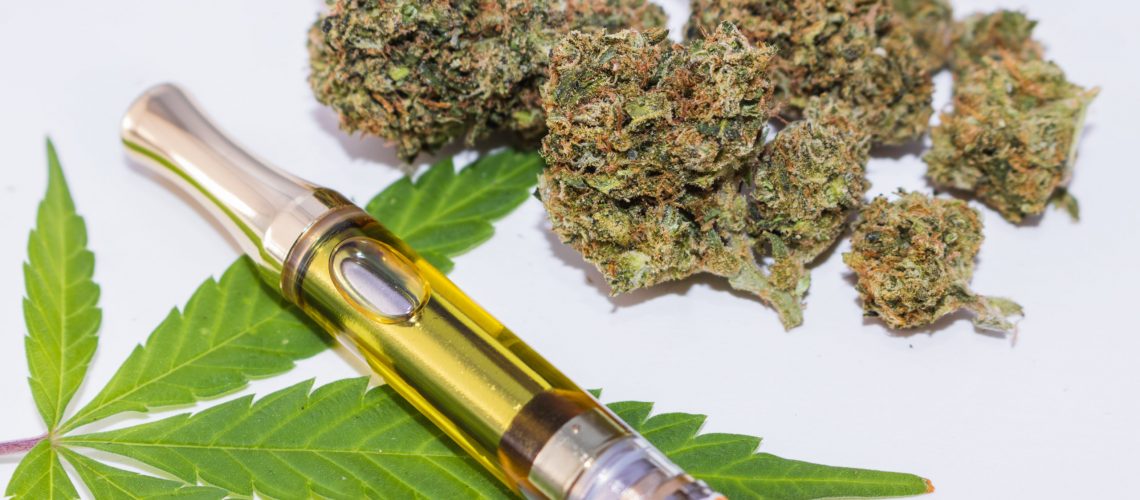Most cannabis consumers still consider Colorado one of the most desirable states. There’s no better place than Colorado to get CBD oil from marijuana or hemp.
Experts expect that by 2021, CBD sales in the United States will total $1.5 billion. It’s recommended to check online for a reliable source of high-quality CBD oil in Colorado. CBD derived from industrial hemp (hemp with 0.3% THC) and CBD derived from marijuana are both allowed in Colorado. Additionally, both medical and recreational marijuana use is legal in this state. However, there are plenty of other stores throughout the state to peruse if you’re looking for anything specific.
What is CBD?
CBD is a chemical found in the hemp or marijuana plant, Cannabis sativa. Pauli et al. (2020) found that the FDA has approved only one CBD-based medication formulation for treating seizures. The Cannabis sativa plant contains about 80 compounds, collectively called cannabinoids. In particular, the compound delta-9-tetrahydrocannabinol (THC) has gained widespread notoriety for its association with cannabis. CBD comes from hemp, a kind of Cannabis sativa with trace levels of the psychoactive compound THC. Though both THC and CBD appear to influence brain chemistry, CBD seems to do so in ways distinct from THC. Devinsky et al. (2014) noted that CBD treats seizures, and doctors often prescribe a particular version of the compound (epilepsy). There is insufficient evidence to support the use of CBD for treating various illnesses, including anxiety, pain, dystonia, Parkinson’s disease, Crohn’s disease, and others. CBD’s status as a controlled substance cannot be added to food or dietary supplements without first obtaining a prescription. It’s only legal for “cosmetic” items to contain CBD. CBD products, however, continue to be sold under the deceptive guise of a food supplement.
CBD Categories
There are three categories of CBD;
- Broad-spectrum: This has the majority of the chemicals found in the cannabis plant. Broad-spectrum products, as opposed to full-spectrum drugs, include minute quantities of THC.
- Full-spectrum: Consists of the entire cannabis plant. The THC content of full-spectrum products is less than 0.3%.
- CBD Isolate: Do not include THC or any other cannabinoids besides CBD.
According to Cather & Cather (2020, July), people who use both full-spectrum and broad-spectrum CBD can experience clinical effects. Results could not entirely be attributable to CBD. Instead, the entourage effect—which happens when numerous substances interact to produce clinical outcomes—could be felt by a person. As a result, a mixture of chemicals from several meanings may be the only reason CBD products are effective.
Colorado CBD Laws
The Colorado Department of Agriculture oversees industrial hemp farms in the state (CDA). Colorado’s Democratic governor, John Hickenlooper, approved Senate Bill 18-205 in 2018 to establish uniform guidelines for the cultivation, distribution, and sale of hemp. Under strict regulations, the state now permits the use of the entire industrial hemp plant in food production. Suppose a company wants to include industrial hemp in its products. In that case, they must first register with the Colorado Department of Health and Environment (CPDHE) and show that they meet the following requirements:
- Those involved in producing or cultivating industrial hemp must follow all applicable laws in the jurisdiction where their product is grown or produced.
- All edible hemp plant parts must originate from a state with a legal industrial hemp program, a country with a food safety inspection and regulation program, or another country meeting identical standards to guarantee its safety for human consumption.
- Lab tests will show that the usage of the plant in any form other than seeds and their derivatives produces levels of THC below 0.3%.
- There can’t be more than 0.3% THC in hemp.
Testing Requirements
To ensure that their hemp products contain less than 0.3% THC, the CDA and CPDHE require all registered manufacturers to submit to laboratory testing. A CDA inspector will contact manufacturers who have been randomly chosen for an inspection and request that a sample of the flower, buds, and upper two inches of foliage be taken for testing. After collection, samples are submitted to a lab for analysis. Hemp that tests positive for THC at 0.3% or above must be discarded. THC values above 0.3% but below 1% result in mandatory crop destruction and possible suspension or revocation of farmer certificates. If the crop has a THC content of more than 1%, it is considered illegal marijuana grow, and the farmers may face legal consequences.
Licensing Requirements
Growing industrial hemp in Colorado requires a state-issued certificate that specifies where the grower may plant seeds on state-approved land. Applications can be submitted any time, although processing may take up to 30 days. Each treatment costs $500, plus $5 per acre or 33 cents per 1,000 square feet for indoor grows. There are currently no limits placed on any given location. An individual’s certification will remain active for a year.
A Guide To Purchasing CBD Oil in Colorado
Purchase CBD online due to the wide range of quality found there; however, many brick-and-mortar stores should also stock high-grade CBD. Due to the ever-changing nature of CBD legislation, it might be challenging to source the appropriate CBD products. There are countless items for sale; unfortunately, not all of them are what they claim to be. Some firms are marketing their products as miracle cures when they contain only a fraction of the claimed amount of CBD in their oils or pills. You may safeguard yourself from such dubious businesses and their wares in a few different ways. Always check if an independent lab has evaluated the products before buying from a firm. Tests in these facilities ensure that the CBD content is consistent with the label and that the product is free of harmful substances like heavy metals. According to MacCallum et al. (2022), a positive indicator is whether the company’s industrial hemp products have been verified as organic, natural, and pesticide-free by reputable organizations. Using your oils for their therapeutic benefits is essential, but adding unnecessary compounds will nullify the effects of CBD. Be wary of companies that make unfounded health claims.
Local CBD Stores in Colorado
Colorado is a great spot to do it if you want to buy CBD oils from a local dispensary. More than five hundred dispensaries are open to the public for recreational use. CBD products can be found in various other retail settings besides dispensaries, including smoke shops, natural health stores, and e-juice boutiques. Considering your area’s plethora of CBD vendors, choose a trusted supplier to obtain a high-quality item.
Online Stores
Shopping online is the most convenient option to acquire high-quality CBD oil without leaving the house. CBD can be purchased in numerous formats, such as tinctures, pills, sweets, vape oils, balms, lotions, and pet treats. The convenience of online shopping for CBD oils eliminates the need to spend time and energy driving around town in search of retailers. Online orders of CBD products typically reach their destination within five days. There is a greater variety of goods accessible at online retailers, and the prices are typically lower than those you would find in a brick-and-mortar store. You can save money on your next purchase by using promotional coupons or accumulating loyalty points.
How to Consume CBD
CBD isn’t cheap, so know what you enjoy and the purpose before trying it. To treat medical conditions or for pure relaxation, you may buy a wide variety of CBD-infused meals and drinks, including coffee, tea, sports drinks, and many others. You might also consume CBD orally by purchasing CBD isolate or oil, or you could manufacture your CBD-infused foods and beverages. High-CBD hemp flower and concentrates can also be smoked or vaporized for a quick high, just like tobacco or cannabis. Because the FDA doesn’t regulate topical applications the same way as ingestible, such as food and drinks, CBD and hemp oil-infused lotions, balms, and bath bombs are swiftly gaining popularity as a skincare method.
How to Read CBD Labels and Packaging
Although the state of Colorado mandates specific labeling for CBD products, the following information is commonly included on labels from respectable CBD producers:
- The concentration of CBD oil in each serving.
- Manufacturer or distributor name.
- Recommended usage.
- Isolate, full spectrum, or broad spectrum.
- Label detailing what’s in your supplement, emphasizing other ingredients.
- Net volume or weight.
- Date or batch code
Conclusion
You may find high-quality CBD oil at Coloradoan dispensaries, vape shops, or head shops. We advocate buying CBD online if you don’t have time to drive all over the city and visit multiple dispensaries to find the best price and quality. In this way, you can be guaranteed to save money while still purchasing high-quality goods. Please do your homework before buying CBD products, and be wary of companies whose advertising claims don’t match their actual offerings.
References
Cather, J. C., & Cather, J. C. (2020, July). Cannabidiol Primer For Healthcare Professionals. Baylor University Medical Center Proceedings (Vol. 33, No. 3, Pp. 376-379). Taylor & Francis.
Devinsky, O., Cilio, M. R., Cross, H., Fernandez‐Ruiz, J., French, J., Hill, C., … & Friedman, D. (2014). Cannabidiol: Pharmacology And Potential Therapeutic Role In Epilepsy And Other Neuropsychiatric Disorders. Epilepsia, 55(6), 791-802.
Maccallum, C. A., Lo, L. A., Pistawka, C. A., & Boivin, M. (2022). A Clinical Framework For Evaluating Cannabis Product Quality And Safety. Cannabis And Cannabinoid Research.
Pauli, C. S., Conroy, M., Vanden Heuvel, B. D., & Park, S. H. (2020). Cannabidiol Drugs Clinical Trial Outcomes And Adverse Effects. Frontiers In Pharmacology, 11, 63.
Barbara is a freelance writer and a sex and relationships adviser at Dimepiece LA and Peaches and Screams. Barbara is involved in various educational initiatives aimed at making sex advice more accessible to everyone and breaking stigmas around sex across various cultural communities. In her spare time, Barbara enjoys trawling through vintage markets in Brick Lane, exploring new places, painting and reading.
[email protected]
- Haze THC by Just Delta: A Kaleidoscope of Flavor and Euphoria – A Personal Exploration - September 25, 2023
- Unlocking Desire: Exploring CBD’s Influence on Libido – Research Findings, Advantages, Drawbacks, and Beyond - September 22, 2023
- Thcv Gummies: The Ultimate Guide - August 11, 2023



